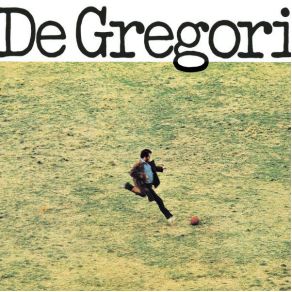De Gregori
Download links and information about De Gregori by Francesco De Gregori. This album was released in 1978 and it belongs to Rock, World Music, Pop, Songwriter/Lyricist genres. It contains 10 tracks with total duration of 32:06 minutes.

|
|
|---|---|
| Artist: | Francesco De Gregori |
| Release date: | 1978 |
| Genre: | Rock, World Music, Pop, Songwriter/Lyricist |
| Tracks: | 10 |
| Duration: | 32:06 |
| Buy it NOW at: | |
| Buy on iTunes $9.90 | |
| Buy on Amazon $9.99 | |
Tracks
[Edit]| No. | Title | Length |
|---|---|---|
| 1. | Generale | 4:19 |
| 2. | Natale | 2:35 |
| 3. | L'Impiccato | 3:58 |
| 4. | Babbo In Prigione | 2:10 |
| 5. | Renoir | 2:37 |
| 6. | Renoir (II° Versione) | 2:22 |
| 7. | Il '56 | 3:05 |
| 8. | La Campana | 3:38 |
| 9. | Raggio Di Sole | 3:06 |
| 10. | Due Zingari | 4:16 |
Details
[Edit]Francesco de Gregori achieved celebrity status with Rimmel and Bufalo Bill, but success also brought unforeseen consequences. During a 1976 tour, extreme left-wing activists interrupted one of his concerts accusing him of selling out. As absurd as it may seem in retrospect, the incident deeply shocked De Gregori (who was always a leftist politically engaged songwriter), so much so that he retired from the music scene and became a bookseller. Fortunately, this self-imposed exile did not last long. About a year and a half later, De Gregori had written "Generale," a song he deemed so good he could not possibly refrain from committing it to record. Appropriately, "Generale" opens his 1978 eponymously titled return album, a stately piano ballad that recounts a soldier's train ride back home after experiencing hell in WWI's hills and trenches. Together with Fabrizio De André's "La Guerra di Piero," it is the greatest and most famous anti-war song coming from the cantautori ranks. Contrary to De André, De Gregori chooses a survivor instead of a victim as his protagonist: the ultimate effect is one of hope, rather than existentialist despair. As with many of De Gregori's best songs, "Generale" issues a humble but defiantly life-affirming message, and its naive, unjustly tried narrator sets the tone for an outstanding album. Indeed, most of the songs on De Gregori are stories about oppressed, confined, or marginalized individuals, due to political persecution and imprisonment, race, ideology, or even heartache. Set to lush arrangements recalling the pop song format of Rimmel, De Gregori features one moving, memorable track after another. The only minor glitch is the inclusion of slow and fast versions of "Renoir," perhaps after the example of De Gregori's much admired Bob Dylan, who did the same thing with "Forever Young" on Planet Waves — yet, just like in Dylan's case, there is no doubt about the slow version being the real thing, and the fast one a fun throwaway. As he had done in his previous album, Bufalo Bill, De Gregori saves the best for last. While not as well known as "Generale," both "Raggio di Sole" and "Due Zingari" are equally poignant, particularly the delicate closer about two gypsy children sharing their dreams set against the barren nocturnal landscape of an urban periphery. Do not be misled by the fact that this album does not seem to contain as many hits as other De Gregori records: this 1978 release is unquestionably one of his very best. In addition, its cover featuring a famous telezoom photograph of De Gregori kicking a ball in a soccer field is the most beautiful of his entire discography.